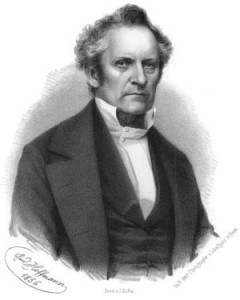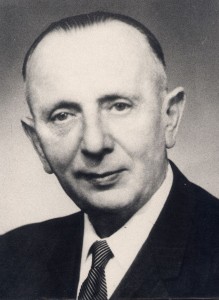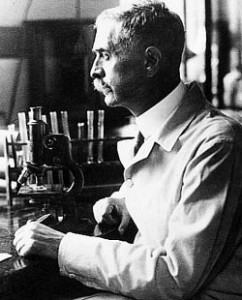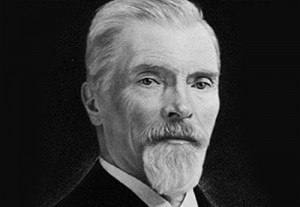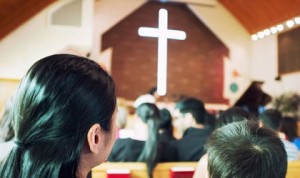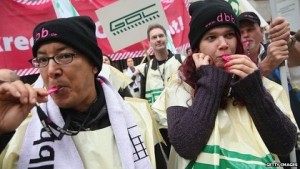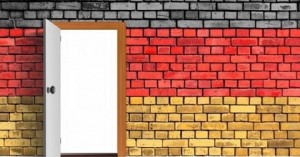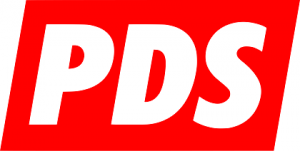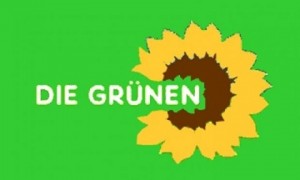June 16, 1801 Birth of Julius Plücker (1801-1868) in Eberfeld, Germany. He was a German mathematician and physicist. He made fundamental contributions to the field of analytical geometry and was a pioneer in the investigations of cathode rays that led eventually to the discovery of the electron. June 16, 1804 Death of Johann Adam … [Read more...]
June 15 in German History
June 15, 1520 The Roman Pope, Leo X, threatens to ex-communicate Martin Luther. June 15, 1866 Prussia attacks Austria as a result of a dispute over Schleswig-Holstein. Prussia won the war by the 1st of July at the Battle of Königsgrätz. June 15, 1890 Birth of Georg Wüst (1890-1977) in Posen, Germany (now Poland). Wüst was an … [Read more...]
June 14 in German History
June 14, 1757 Death of Karl August Archduke of Saxe-Weimar-Eisenach. He made an intellectual center of Weimar through his invitation and patronage of Goethe, Herder, Schelling, Hegel and Schiller. June 14, 1862 Birth of John Ulric Nef in Herisau, Switzerland. Nef was a chemist who demonstrated that carbon can have a valence. He came to the … [Read more...]
June 13 in German History
June 13, 1539 Birth of Jost Amman in Zürich, Switzerland. Amman was a leading painter and Printmaker of his age. June 13, 1809 Birth of Heinrich Hoffmann in Frankfurt am Main. Hoffmann is most widely known as the author of Struwwelpeter, a classic children's book. June 13, 1885 Birth of Elisabeth Schumann in Merseburg, Germany. … [Read more...]
The Churches as a Political Force in Germany
Religious associations represent a third major group of organized interests in the German policy process. The experience of the Third Reich had a profound influence on the postwar development of Protestant and Roman Catholic churches in the Federal Republic. Both espoused the view that moral responsibility extends to political responsibility and … [Read more...]
Labour Unions as a Political Force in Germany
During the Weimar Republic, labor unions were divided along partisan lines, a situation that led to competition among the socialist, communist, Catholic, and liberal trade associations. After World War II, labor leaders wanted to break with the past and form a trade union federation independent of political parties. The result was the establishment … [Read more...]
Business and Industry as a Political Force in Germany
There are three levels at which business and industrial interests seek representation. First, business wants its perspective heard as the government formulates policy. Second, business needs representation in negotiations with labor unions. Third, business may desire support in cultivating new clients or suppliers. Each of these objectives is met … [Read more...]
Party of Democratic Socialism
The communist party that ran East Germany was the Socialist Unity Party of Germany (Sozialistische Einheitspartei Deutschlands--SED). Founded in 1946, the SED controlled the government and the electoral process and supervised the omnipresent State Security Service (Staatssicherheitsdienst--Stasi). To be considered for important positions in East … [Read more...]
The Republikaner and the German People’s Union
On the opposite end of the political spectrum from the Greens are two parties of the far right, the Republikaner (Die Republikaner--REP), with about 23,000 members, and the German People's Union (Deutsche Volksunion--DVU), with 26,000 members. As of mid- 1995, these two parties had not gained sufficient support to win seats in the Bundestag, but … [Read more...]
Green Party of Germany
In the early years of the FRG, several minor parties representing a range of political views from the neo-Nazi right to the communist left played a role in the political system. Support for these parties dwindled over time, and, after 1961, the FDP was the only smaller party to cross the 5 percent threshold necessary to gain Bundestag … [Read more...]
- « Previous Page
- 1
- …
- 90
- 91
- 92
- 93
- 94
- …
- 139
- Next Page »
